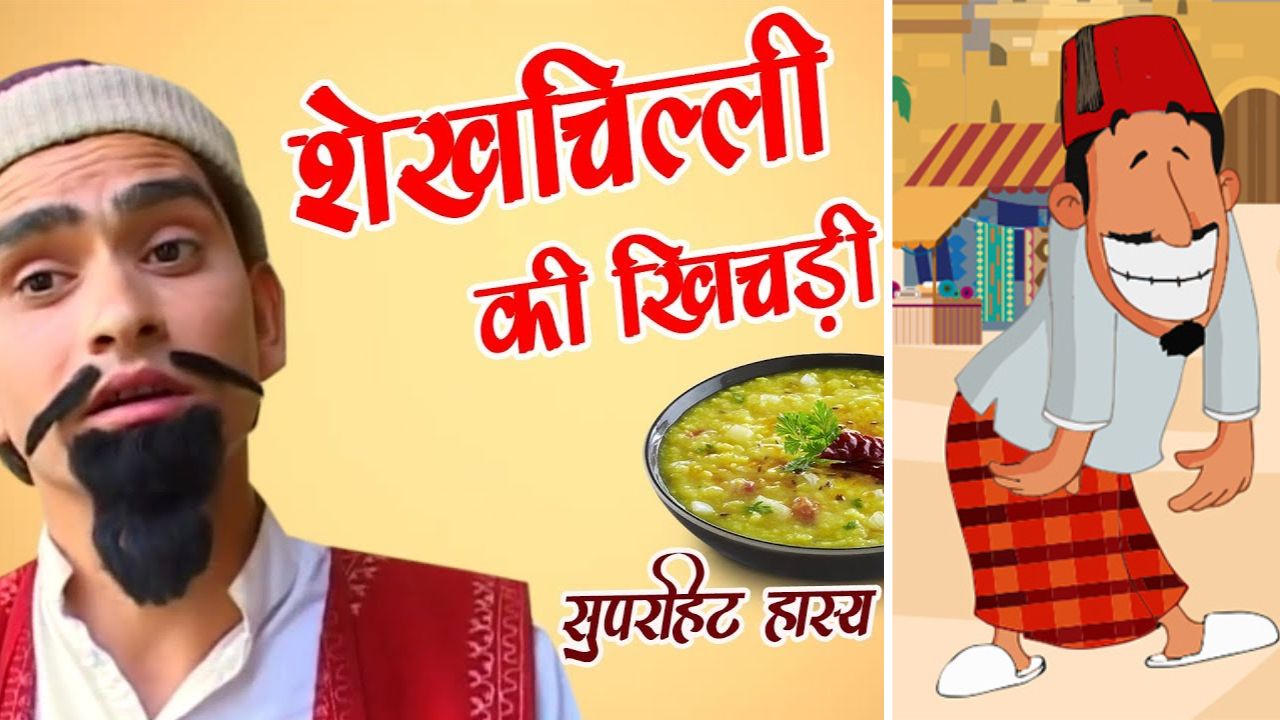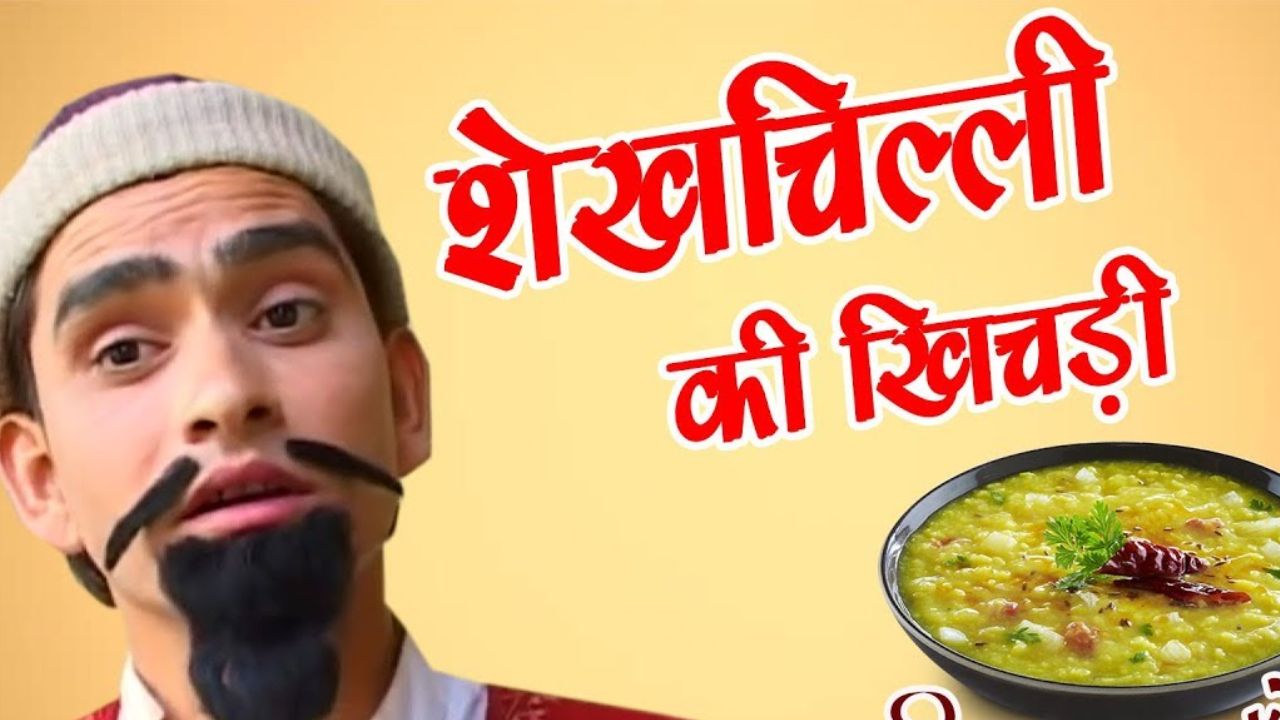The Story of Sheikh Chilli and the Khichdi
Sheikh Chilli once visited his in-laws to meet his mother-in-law. Upon hearing of the son-in-law's arrival, the mother-in-law began preparing khichdi for him. Sheikh Chilli arrived shortly after and, upon entering, immediately went to the kitchen to see his mother-in-law. Mid-conversation, Sheikh Chilli's hand accidentally knocked over a ghee-filled container, spilling it directly onto the khichdi. The mother-in-law was understandably annoyed, but her anger remained contained and she lovingly served the khichdi to her son-in-law. He found the dish remarkably delicious, especially given the generous amount of ghee. Sheikh Chilli, enchanted by the flavor, asked his mother-in-law for the name of the dish so he could recreate it at home.
The mother-in-law told him it was khichdi. Sheikh Chilli, unfamiliar with the word, repeated it diligently as he walked home, determined not to forget. However, before long, he had lost the word. Instead of repeating "khichdi," he muttered "khachidi." As he continued on his way, he encountered a farmer who was shouting "udachidi" to scare birds away from his crop. Hearing Sheikh Chilli say "khachidi," the farmer became angry.
He confronted Sheikh Chilli, explaining that he was trying to frighten birds away and not to call his crop "khachidi." He insisted Sheikh Chilli should call it "udachidi." Sheikh Chilli, accepting the correction, began repeating "udachidi" until he reached a pond. There, a man was fishing. Hearing the "udachidi" refrain, the fisherman caught Sheikh Chilli and demanded that he stop, for the fish would scatter at such a sound. He insisted Sheikh Chilli say "Aao phans jao" (Come, get trapped).

Sheikh Chilli, now fixated on the words, continued repeating "Aao phans jao" (Come, get trapped). Further along his journey, a group of thieves heard him and, mistaking his words for encouragement, beat him up, yelling that he was telling them to get caught. They demanded he say "Aao rakh jao" (Come, put it down). Dejected, Sheikh Chilli, now repeating "Aao rakh jao," came across a funeral procession. The mourners, hearing his words, were angered. They scolded him, saying that if he continued such pronouncements, no one would be left alive. They insisted he say "Aisa kisi ke sath na ho" (May this not happen to anyone).
Sheikh Chilli thus continued his journey, repeating "Aisa kisi ke sath na ho" (May this not happen to anyone), until he encountered a wedding procession. The joyous revelers, upon hearing his words, were offended and demanded that he say "Aisa sabke sath ho" (May this happen to everyone). Exhausted, Sheikh Chilli returned home. Upon reaching his house, he approached his wife, recalling his in-laws' hospitality and mentioning the delicious meal. He requested the same food be prepared for him. Curiosity piqued, his wife inquired about the dish's name. Sheikh Chilli, however, could only remember the mangled words he had been repeating.
Frustrated, he demanded she prepare the dish without knowing its name. His wife, understandably frustrated, refused. The argument escalated, and Sheikh Chilli continued to insist on the meal. A nearby woman, witnessing the scene, inquired about their dispute. Hearing Sheikh Chilli's words about the "khichdi," he was reminded of his mother-in-law's instruction, and he corrected himself, informing his wife of the dish's name. With the name revealed, his wife calmed down and they returned home.
The moral of this story is: If you are concerned about misremembering something, write it down. Merely repeating words can lead to misinterpretations and mispronunciations.








